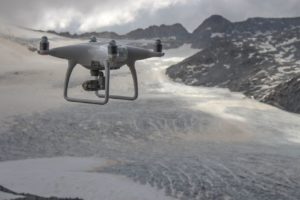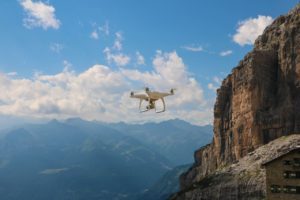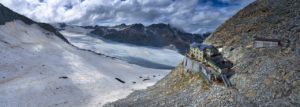Drone manufacturer DJI is taking a leadership role in the “Drones for Good” movement – ensuring that drone technology is fully utilized for humanitarian projects. DJI has been on the scene of major disasters across the globe, partnering with local teams to provide drone services. They’ve partnered with other innovators to provide better technology, including their project with Ford to create drone to vehicle communications for better disaster response; and they recently awarded 100,000 to a California team who won their Developer’s Challenge for Search and Rescue.
“DJI strongly believes that drones are a force for good in the world, and we work hard to share examples of how drones are making businesses more efficient, improving educational opportunities, opening up the joy of flight and even helping save lives,” Adam Lisberg, DJI’s Corporate Communications Director, North America, tells DRONELIFE. “Any new technology raises questions and even fears for some people, so it’s important to show how legitimate concerns about drones can be managed and how the benefits of drones are being realized right now. DJI is actively researching ways to improve search and rescue, we’re working with Shapeways on a contest for new emergency response accessories, and and we have active outreach with first responders to find out how we can expand those benefits.”
Director of Education Romeo Durscher said that early studies find that a “properly-equipped” drone can find a missing person in a one-square-kilometer area within 20 minutes – more than 80 percent faster than traditional methods of search and rescue.
At a presentation at the InterDrone conference in Las Vegas today, Durscher discussed the study, performed in partnership with the European Emergency Number Association (EENA). “DJI’s research with Ireland’s Donegal Mountain Search and Rescue found that while a five-person rescue team needs two hours on average to find a victim in one square kilometer, a drone can not only find that victim in 20 minutes, but can take additional active steps to achieve a successful rescue,” says a DJI statement.
DJI is developing controlled test methodologies to continue collecting rigorous data on how drones can save lives in firefighting, search and rescue and other forms of emergency response, as well as better protect search and rescue personnel. DJI and the research and development firm Black Channel recently led a field study of drone rescue technology in extreme altitudes and weather conditions on the Adamello Glacier in Italy’s Dolomite mountains.
“I do think that the drones can improve search techniques,” said Joe Eyerman, Co-Director of Black Channel, which is dedicated to applying scientific methods to the evaluation of unmanned aircraft to medical missions including search and rescue, emergency response and data collection. “If we can resolve some of the minor challenges we had on this study, we would be able to give them to members of the search community right away and they could begin making the mountains a safer place.”
DJI says that this is the first project to use scientific methods to assess the value of drones in supporting search teams in extreme conditions. The project used the DroneDeploy application, and created mosaic maps from the drone images to allow teams to prioritize possible victim locations, and to identify changes in environmental conditions. But Durscher says that this is only the first step in a whole search and rescue operation:
“As we study the search and rescue process, we realize that finding a victim in rough terrain is just the first part of the process,” Durscher said. “A drone also must be able to transmit images and GPS coordinates to other searchers and commanders as part of a coordinated software solution, deliver small rescue payloads to a victim, and serve as a beacon to guide rescuers to the right spot. Drones are already being used to save lives around the world, but we believe working with experienced emergency responders is the right way to develop a strategic approach that will maximize their capabilities.”
http://dronelife.com/2016/09/09/drones-good-drones-mean-faster-search-rescue/



Wow because this is extremely great excellent work! Congrats and keep it up
This looks incredible!